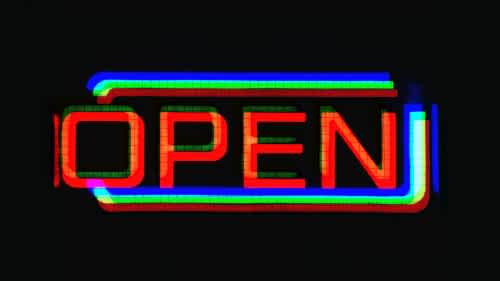Humans aren’t meant to be alone. Since the dawn of time, it’s through humanity’s ability to cooperate and collaborate for the sake of reaching a common goal that we are where we are now. Nowadays, a perfect example of this in action is the developer community. Unlike any other industry, developers are more often collaborative than not, and so much of their lives revolve around the communities they create for themselves.
If you’re a developer but haven’t quite managed to find your community yet, you’re not the only one. It can be challenging to know where to start or know which community to join in any phase of your developer career.
Jessica Jordan, Ember core team member, and developer community advocate, recently shared her tips on finding your developer community. Check out her video here.
1. Assess what you need
Before setting out into the online abyss to find your developer community, Jessica says you should assess what you need right now. There’s something for every developer, at every stage of your career, for any interest, and the options could seem overwhelming. Take it one step at a time.
2. Finding a local developer community
Jessica lives in Berlin, and thankfully for her, this city offers many opportunities to engage with other local developers. “I’ve had a lot of great experiences with meetup groups, and for a long time, I’ve been a part of the Open Tech School, which is an organisation that helps people learn more about technology.” Through her experience, she’s engaged in workshops and co-learning groups and found it beneficial as a beginner. “I had the support of other peers, and I received free mentoring, so to speak, which provided a sense of accountability to show up regularly, and also to learn on my own.”
To find your local community, Jessica suggests “Google is your friend.” If you’re in a town or city, you probably won’t have any issues finding developer communities to join, especially on Meetup. However, you might find some groups are inactive or the organisers haven’t posted in a while. “It can help to ping them and ask if something is still happening; you’re showing your interest, and this has worked for me in the past.”
3. Find an online developer community
While meeting other developers face-to-face has a whole range of benefits; if you’re limited in your access to local communities, you’re almost guaranteed to find one online. “You might already work with different frameworks or technologies which have online communities on Discord or Slack,” says Jessica, “which is not only great for networking, but also to find inspiration for new projects, ideas, and even to get involved in open source.” During COVID-19 times, many Meetups are going online via video streaming. Seize the opportunity to join some other local communities from around the world while you can.
Here are a few places to start finding your online community
dev.to
In their own words, “the software industry relies on collaboration and networked learning,” and dev.to provides the space for developers to get together and help each other out, whether that’s with the technical aspects of coding, career advice, or general support and motivation.
#developers on Slack
You’ll have to answer a few questions to get access to this channel, but once you’re in, you’ll get all the support and advice you need :)
Hashnode
Write an article about whatever coding topic you want, and engage with the wider community. It’s a great way to stay connected with other developers.
Women Who Code
This is a supportive space for women in tech, where they’ll find coding resources, leadership opportunities, and an open space to exchange ideas.
There’s a subreddit for whatever your coding niche is; check out some of the most active: r/programming, r/python, r/javascript, r/reactjs and r/cscareerquestions.
Facebook Developer Circles
The main aim is to create locally-organised communities where developers can “receive free tools to build new skills, grow ideas and boost their careers.” Search for yours on Facebook; all discussions are currently happening online.
4. Find an open-source community
One of the most significant parts of Jessica’s life has been her involvement in the open source community. “Being an active member of an open source community is not only about contributing, but also attending events and conferences, getting to know others, finding mentors, and networking.” Her experience has seen her access opportunities she might never have had, had she not found the Ember community. “I had the freedom to try different things, to get into public speaking, mentorship, and community-building itself.”
“Being an active member of an open source community is not only about contributing, but also attending events and conferences, getting to know others, finding mentors, and networking.”
Aside from the skills learned in an open source community (both technical and non-technical), being a part of it gives a sense of belonging outside of her nine-to-five. In an open source community, there’s a unique feeling of working on something bigger than oneself, and in many ways, the work is a meaningful contribution.
Wondering where to begin? Think about which open source projects you like using, and start there -- it can even be as simple as fixing a typo. The important thing is to do something.
Conclusion
The amount of support, encouragement, and selflessness a developer experiences in the broader community is unmatched in other communities. Thankfully, access to developer communities is everywhere, whether locally or online, and finding the developer community that’s right for you is, in the words of Jessica, “a game-changer.”


